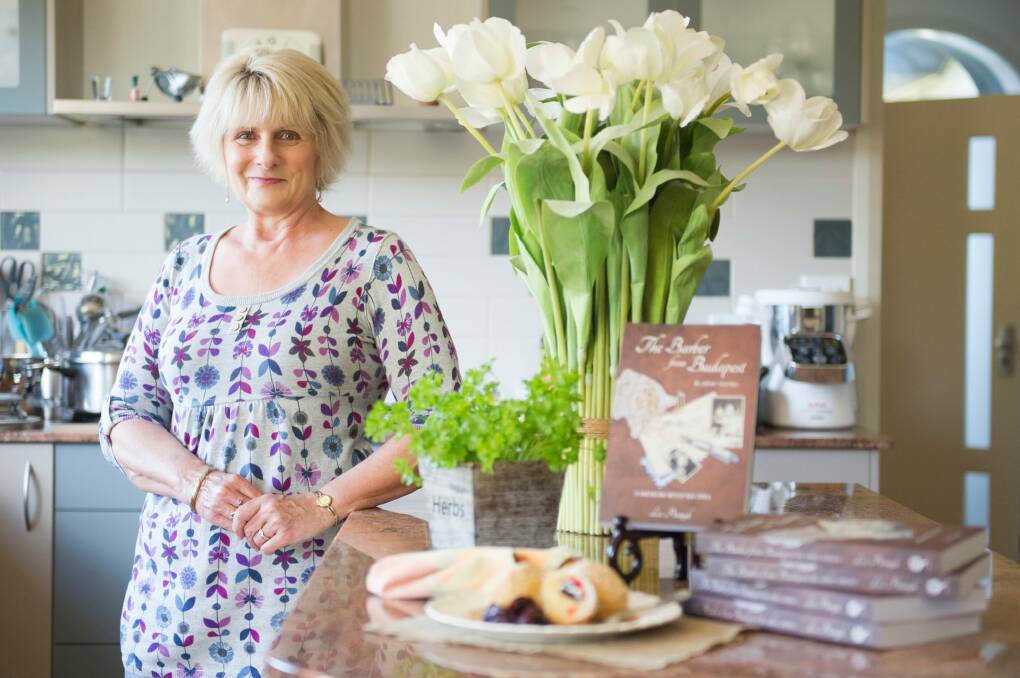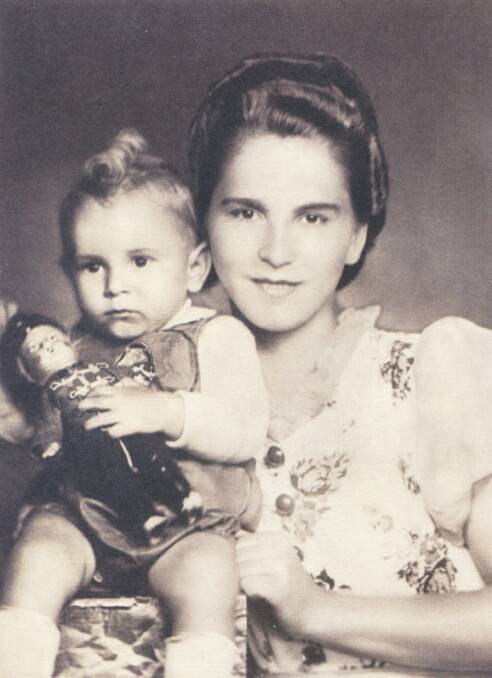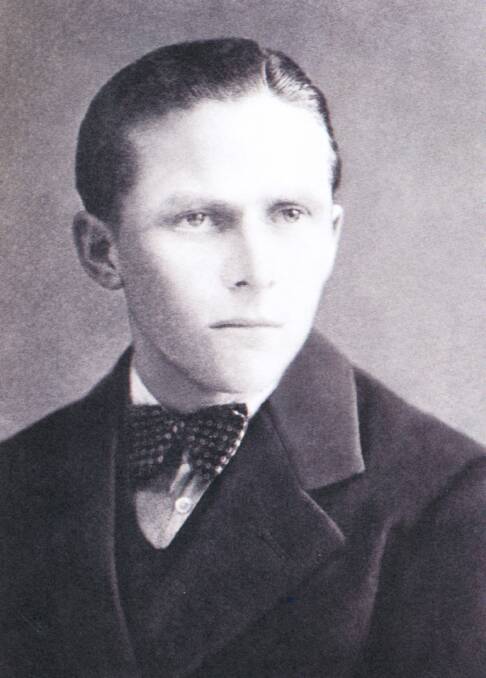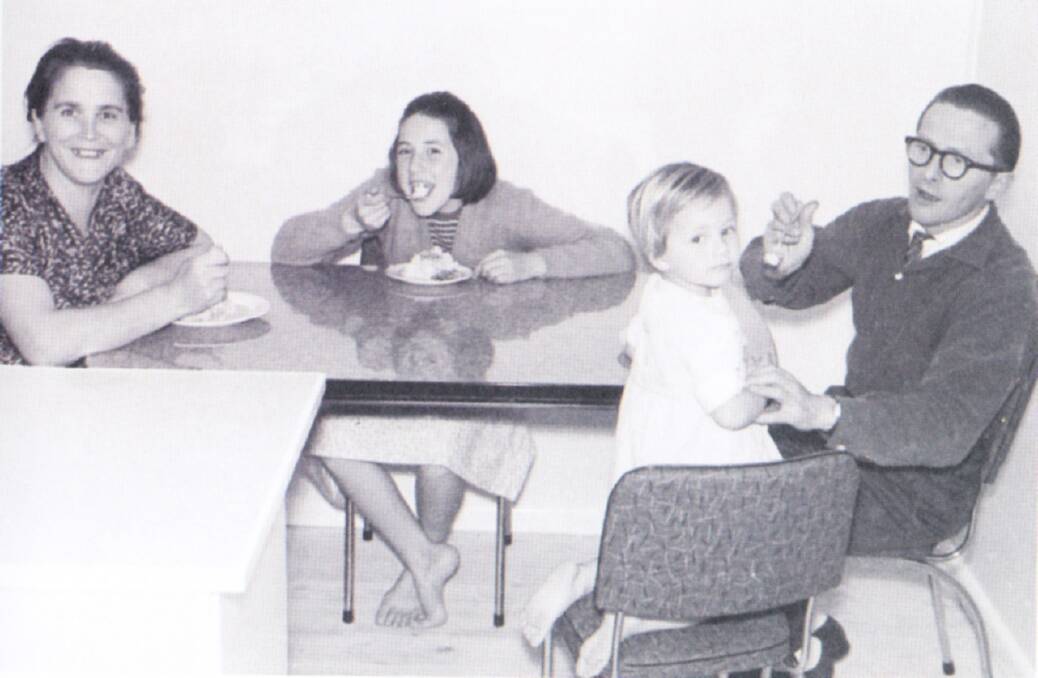Liz Posmyk is on the verge of tears as we talk about all the stories that are heartbreakingly lost with people when they die.
Subscribe now for unlimited access.
or signup to continue reading
"People go through their lives and they're just so busy," she says.

"They get too busy to sit down with grandma and truly listen to her stories.
"I can't urge people enough to do this themselves."

Liz has spent the past 12 months ensuring the story of her own parents - Andras and Iren Jasso - is never lost. Despite both parents having passed away, she's called on a range of resources to write her brand new book The Barber from Budapest. Those resources include pages and pages of Andras's tiny handwriting (in fluent Hungarian), a three-hour interview Liz filmed with her father in 1997, some of Iren's favourite recipes and Liz's own memories of a very young Canberra.
The result is the stunning story of two resilient, beautiful, hard-working and simple people, and their family. It chronicles 83 years, two world wars, four children, several attempts to flee Hungary and ultimately, two continents.
"It was like I was bringing them back to life," Liz says.
"People have said to me that their characters and their voices pop out of the page - people say, 'I can hear Andras'.

"My editor said at the launch, 'I didn't meet your father but he pops out of the page - but your voice is there too Liz because you are funny and cheeky like your dad'."
Andras Jasso was "a small man with big ideas" who trained as a barber in Budafok, Hungary. He first laid eyes on Iren Tamasi in Satoraljaujhely, Hungary, in May 1945. Both had endured years of hardship - she with two young boys and working as a field nurse in World War II, and he fleeing an abusive father and living with gypsies in Austria in the late 1930s - before they met. Both were wary of starting a new relationship, but over time, they grew a deep and staunch connection.

The Barber from Budapest follows a young Jasso family living in post-World War II Hungary, including Andras' unwavering refusal to join the Communist Party and the family's struggle to find warmth and food in a broken Satoraljaujhely.
Liz says this first part of the story required a microscope and a crash course in written Hungarian i order to be told.
"I got back from Hungary last November and thought 'right, I need to do this' - I just knew I needed to tell their story," she says.
"I pulled dad's writing out and it was in a huge old foolscap 1963 diary that he had tucked away for years and it had tiny writing in fluent Hungarian.
"So a) I couldn't read it properly, and b) I got my friend Betty who was born in Hungary to start me off and that was the kickstart I needed.
"(Betty) would email me every night and she' d send me an attachment which was the translation and then once I got the swing of it - and I bought a magnifying glass! - I was able to go from there.
"I sat and first transcribed his writing and then I sat and watched the video I have of him talking for three hours - I taped that video in 1997, just after mum died. Mum had bought me the video camera - it was serendipitous.
"I went into my study to watch the video and and I shut the door and I could smell him in the room as he spoke and I cried and cried and cried."
The second instalment of the book is built on Liz's own memories of growing up as the child of immigrants in a very young Canberra. The Jasso family arrived in Australia in 1958 and had a brief stay in Albury before Andras was offered a job as a barber in the ACT. The family stayed at Bega Flats before taking up residence in the 'Buggy Shed', one side of a timber shed built in the back garden of the Constable's Cottage in Acton.
Liz, the baby, and her three siblings spent years roaming Acton as children, including watching cricket and tennis on a huge field that is now home to one very big lake. Andras became an icon of the Canberra hairdressing scene, setting up his own barber shop at the back of the Lyneham newsagency in 1963. The family's dreams became a reality when they were given their first family home in Downer by the Department of Interior.
It is the kitchen of this home that inspired the third instalment of the book, a series of Hungarian recipes used by the talented and frugal cook, Iren.
When she describes the kitchen of her childhood home in Downer, Liz smiles.
"It always smelled delicious," she says.
"It was always warm, my mother was the constant presence, and there was always the most amazing things coming out of there.
"We had a green Laminex kitchen table and green chairs and timber floorboards - eventually dad put some red and yellow linoleum tiles down - but it always smelled fantastic.
"The kitchen table and the breakfast bar were often draped with a white damask cloth and mum would always say 'shut the door little chicken' because she didn't want her yeast to get cold."
The exact way The Barber from Budapest was written is a reflection of how deeply personal the story is for Liz. There were no computers or even typewriters in sight - she wrote the novel on lined A4 paper with a fountain pen and ink.
"I bought myself a fountain pen because I'm an old school writer and while yes, you can do things on the computer, to sit down with this good quality A4 lined notebooks and a fountain pen was fantastic," she says.
"I also lashed out a bit and bought a quill pen with this stunning peacock green feather on it, and I just sat there with my bottle of ink and wrote the story.
"I also played music a lot - I played the music that mum used to listen to - including the Hungarian 'homesickness song' that they played on free radio during the uprising in Hungary in 1956.
"I find that music and setting is very important for writing."
While it was never Liz's intention to write a page-turner, her work to truly bring the characters of her parents to life in The Barber from Budapest has meant people "can't put it down".
"People have been coming back and saying 'I read it in one sitting'," she says.
"Even my editor - when I first contacted her and sent her the first PDF - said she was blown away.
"For me, it's overwhelming. It was daunting putting it out there because it's my personal story and it's a very personal memoir and it's my own mum and dad.
"But I've had such an incredible response, it's very humbling."
And there's been no greater response than from her own family.
"My nieces and nephews, my daughter and my sister are just so grateful that I've done this," she says.
"My niece said to me 'Aunty Liz, that's the best present I've had in my entire life'.
"The dandelion at the front of the book represents the seeds blowing down through the wind and my parents' story filtering down through the generations.
"We all come from somewhere."
The Barber from Budapest and Other Stories is available to buy from Liz Posmyk's blog, www.bizzylizzysgoodthings.com
A percentage of sales from the book will go directly to the International Organisation for Migration, the organisation that assisted the Jasso family to immigrate to Australia in 1958.

